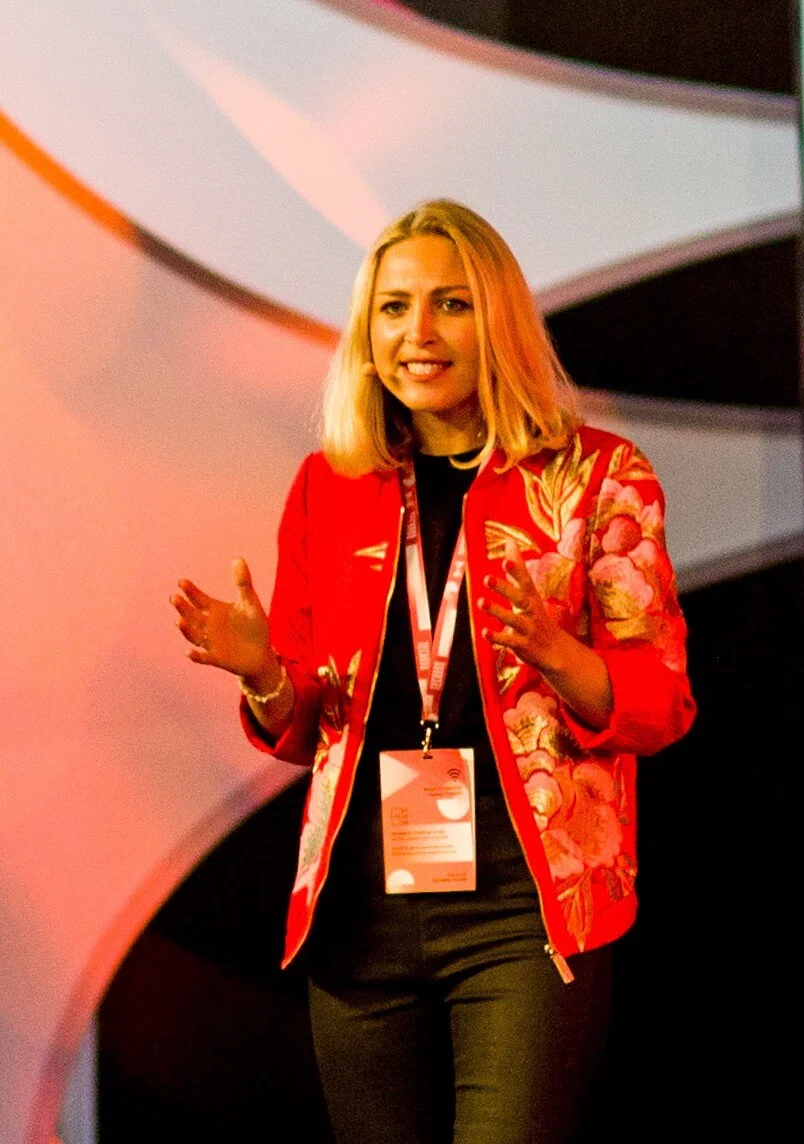Guest Post: The relentless climb of living with Imposter Syndrome
The relentless climb of living with Imposter Syndrome
Guest Post by Kosta Kolev
A 6 minute read: pause, hit the mute button and for a moment, walk in someone else’s shoes.
Imposter Syndrome and running a startup go hand in hand. It’s something I have continuously faced over the last 10 years. Almost all of the founders that I know have dealt with it in one shape or another.
I spent some time thinking about when Imposter Syndrome has been most crippling for me, a poignant example to start this post. Maybe at an investor pitch or perhaps in front of a large audience of my industry peers? The reality is that even though those moments filled me with Imposter Syndrome (with a garnish of nerves and anxiety), the thing that makes Imposter Syndrome such a formidable enemy to conquer is that it’s always there. In the background, quietly humming, making you question yourself.
And don’t get me wrong, questioning yourself isn’t always a bad thing. If we didn’t do it, we would probably become arrogant psychopaths - another founder occupational hazard best left for another time. The reality is that sometimes it’s hard to differentiate genuine risks and issues you should be worrying about, and you are filled with unhelpful self-criticism that leaves you crippled. You worry tonight is the night they find out you’re a fraud and they take everything away from you.
Another reason why Imposter Syndrome feels so hard to pin down is that we love its other side - growth mindset. At the surface, these two mental states feel distant, but I believe they are painfully intertwined.
Growth creates a tension between where you are now and where you want to be, not just with your business and your team, but also with yourself as a human. This naturally leads you to feel some dissatisfaction with where you are now. The tension can be so powerful in pulling you up, and at other times, it can feel destructive.
Everything is amplified by the fact that startups are a relentless slog. You master sales and now you need to master building a sales team, and pulling together a sales playbook for the new hires. As soon as you clear one peak, the clouds clear and you realise you’re not at the top yet, there is more to go.
This relentless climb leads to burn out and is also at the heart of why I believe we see Imposter Syndrome in startup founders. We’re always climbing. We’re always in metamorphosis. Always in a cycle of fixing, building and breaking.
And it’s those moments when the wind shifts direction and the excitement you felt to conquer your industry swiftly changes to you asking yourself how you can possibly take on those well funded global competitors.
According to TechCrunch, they are smashing it.
Imposter Syndrome is such a complex mental state to escape. It’s both paralysing and energising. It’s the thing that keeps you up at night wondering why you’re behind on your roadmap and how your competitors are catching up, whilst also being the growth mindset driver that helps you wake up, pumped to fight another day and hustle.
So if we accept that Imposter Syndrome is just part of the game and maybe something that cannot be fixed, how can we accept it and learn to manage it better?
Here are some things I try to remind myself of when the going gets tough and the negative self talk and judgement becomes louder.
Be extra mindful of exhaustion
This has been especially important over the last year with lockdown because fatigue makes cowards of us all.
When you’re tired the bad words you say to yourself don’t quite roll off your back as smoothly as you’d hope. The Resistance (reference to Steven Pressfield, The War of Art), the force that fights our creativity and sabotages our aspirations, feeds on fatigue.
Media headlines are just headlines
It’s easy to be tricked by headlines and to think everyone is on a rocket ship - huge funding rounds, lots of big hires and global expansions.
The reality is rarely as rosy, and more importantly, it would not generate as many clicks to fuel media business models. Many companies look good from 10,000ft, and inherently, we all know that fundraising and great PR are only ever loosely correlated with success. Yet, it’s so easy to get blindsided by an article that hits your inbox and forget that this is all part of a crafty way to leverage PR for sales, hiring and future rounds anyway.
Luck and risk are always a factor
No one wants to hear about the founder who was simply at the right time and place to seize the moment. The story of the Herculean effort is so much more exciting to share. They won through sheer perseverance, strength and cunningness. Of course these are all factors but it’s how much they are overemphasised, that you should question.
Virtual events, remote productivity tools, home fitness and crypto, are some sectors that exploded during COVID. Others completely disappeared.
Context is important, and causes are complex
It’s easy to get caught out by our attribution bias, and it works both ways.
We attribute the role of luck differently for ourselves compared to others, and it plays an important role. Without it, we are in some ways giving up our need for agency. If it was all luck, how could we be in control of our destiny? The other part is that we simply have more context when it comes to ourselves.
If I am successful it has to be because of my hard work, focus and perseverance, when others succeed it’s because of their luck and nepotism. Conversely, when others fail it’s due to a lack of skill and competency, when we fail it was bad timing.
No one is actually as good or as bad as you think
We are all human and experience a spectrum of both positive and negative emotions, and live with our fear, worries, hopes and dreams.
This story of author Neil Gaiman is the perfect example.
“Some years ago, I was lucky enough to be invited to a gathering of great and good people: artists and scientists, writers and discoverers of things. And I felt that at any moment they would realise that I didn’t qualify to be there, among these people who had really done things.
On my second or third night there, I was standing at the back of the hall, while a musical entertainment happened, and I started talking to a very nice, polite, elderly gentleman about several things, including our shared first name. And then he pointed to the hall of people, and said words to the effect of, “I just look at all these people, and I think, what the heck am I doing here? They’ve made amazing things. I just went where I was sent.”
And I said, “Yes. But you were the first man on the moon. I think that counts for something.”
And I felt a bit better. Because if Neil Armstrong felt like an imposter, maybe everyone did. Maybe there weren’t any grown-ups, only people who had worked hard and also got lucky and were slightly out of their depth, all of us doing the best job we could, which is all we can really hope for.”
In the end, it’s important to remember Imposter Syndrome is one of those difficult mental loads we have to carry on this journey. Like most important mental loads in life, it’s about the conversations you have with yourself and every now and then, remembering no-one truly has all their shit figured out and we are all making it up as we go along.
Become a contributor and engage with The Future Farm
Are you interested in contributing on the topic of entrepreneur health and emotional resilience with us? Or interested in inviting The Future Farm to contribute to your initiatives or event? Drop us a note.



